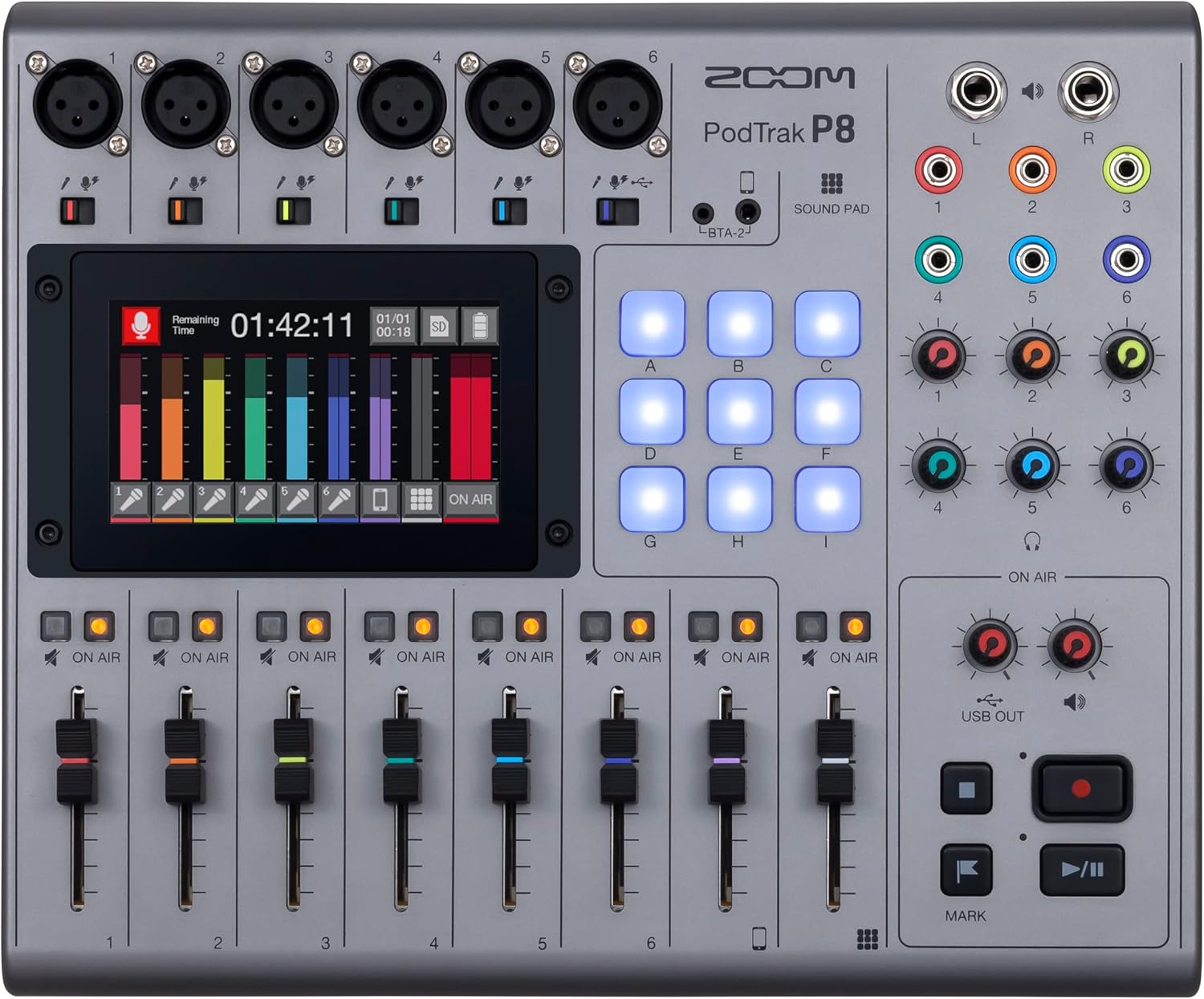Do You Really Need a Podcast Mixer? Here’s the Truth No One Tells You
Do You Need a Mixer for a Podcast?
TL;DR: No, you don’t need a mixer to start a podcast — especially if you’re using a USB mic and recording solo. But if you plan to grow your show, add guests, record calls, or want broadcast-level audio, a podcast mixer can be a total game-changer. Here’s why.
When starting a podcast, one of the most common questions is whether you need a mixer. The answer depends on your setup and goals. A mixer might not be necessary for solo podcasters or beginners using a USB microphone. However, a mixer can be a game-changer if you’re managing multiple audio sources, hosting guests, or aiming for professional sound quality. Let’s explore why mixers matter and how to choose the best one for your needs.
 Click to learn more about this mixer
Click to learn more about this mixer
Do You Need a Mixer?
You probably don’t need a mixer if you’re recording a solo podcast or using basic equipment like a USB microphone. But if your podcast involves:
- Multiple hosts or guests
- Mixing sound effects or music live
- Recording live streams
- Advanced audio quality goals
…then investing in a mixer could take your podcast to the next level.
What Exactly Does a Mixer Do for a Podcast?
A podcast mixer allows you to combine, shape, and route audio from multiple sources. This means:
- Balancing levels for multiple mics or sound sources
- Applying EQ, compression, or reverb in real-time
- Monitoring audio with headphones for each speaker
- Recording multi-channel or live audio with more control
Whether you’re recording in a home studio or on the road, a mixer gives you precision and flexibility over your audio setup.
Pros and Cons of Using a Mixer
Why You’ll Love a Mixer:
- Audio Control: Fine-tune your sound live — no need to fix it in post.
- Input Flexibility: Handle multiple mics, calls, or instruments with ease.
- Real-Time Adjustments: Adjust gain, EQ, or mute channels instantly.
- Built-In Effects: Many mixers have onboard compression, de-essing, or FX.
Why a Mixer Might Not Be for You:
- Learning Curve: Mixers can be intimidating to learn at first.
- Cost: Higher-end models like the Rodecaster Pro aren’t cheap.
- Desk Space: Mixers take up room and aren’t great for minimalist setups.
- Overkill for Simple Setups: If you’re solo with a USB mic, you likely won’t benefit from one — yet.
Types of Mixers for Podcasters
- Analog Mixers: Basic, budget-friendly, but limited in features.
- Digital Mixers: More precise with built-in processing and presets.
- USB Mixers: Plug-and-play with your computer. Great for beginners.
- Podcast Mixers: All-in-one units with phone integration, sound pads, and multi-channel recording. Popular models include the Zoom PodTrak P4 and Rodecaster Pro.
- Portable Mixers: Lightweight and ideal for recording on the go.
- Virtual Mixers: Software-based like VoiceMeeter — free, but complex.
How to Choose the Best Mixer
Think through the following:
- People Count: Hosting guests? Choose a mixer with enough XLR inputs.
- Budget: Analog for entry-level, digital or podcast-specific for pro features.
- Portability: Need to travel? Look into compact units like PodTrak P4.
- Live or Pre-Recorded: Live shows benefit from real-time FX and monitoring.
Start Small and Upgrade Over Time
If you’re new to podcasting, start with something like a USB mixer or an affordable analog model. Learn how to manage levels, EQ, and gain — then consider upgrading to something like the Zoom LiveTrak L-8 or Rodecaster Pro as your show evolves.
Final Thoughts
So, do you need a mixer for your podcast? Not always. But if you’re aiming for better sound, smoother workflow, or a multi-person setup, a mixer is one of the best upgrades you can make.
Helpful resources:
- Audio Mixer for Podcast – A full breakdown of what mixers do
- Zoom PodTrak P4 – A portable, budget-friendly option
- Rodecaster Pro – An all-in-one powerhouse for serious podcasters
- Zoom LiveTrak L-8 – Versatile, expandable, and pro-grade
Whether you’re just getting started or upgrading your gear, choose the right mixer based on your goals — and let it unlock the full creative potential of your podcast.
- Best Podcast Cameras in 2026: Creator Picks for Every Budget
- Yamaha MGX Series for Podcasting: The Practical Guide (MGX12 vs MGX16 vs MGX-V)
- What Is Streamyard, This Weird Tool That Helps You Run a Professional Live Show
- What the “Async” Rebrand Actually Means for Your Old Podcast Files
- Why Serious Podcasters Are Moving to 10GbE NAS